Lifechanger (2018)
Directed by: Justin McConnell
Written by: Justin McConnell
Starring: Bill Oberst Jr., Elitsa Bako, Jack Foley, Lora Burke
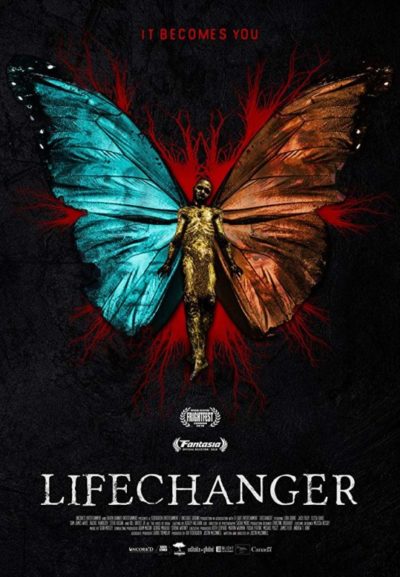
LIFECHANGER
Directed by Justin McConnell
To really understand someone, it’s often said you need to walk a mile in their shoes. Or, as is the premise for this film, have a rare condition that lets you take their body – and with it, their thoughts, memories and dreams. It’s a neat idea, particularly when writer/ director McConnell adds the additional twists that Drew (played by numerous actors) needs to hop bodies to survive, or else he decomposes. And that taking a person’s identity means they die. Thus we have ourselves a body-swapping, serial killer thriller. Cool.
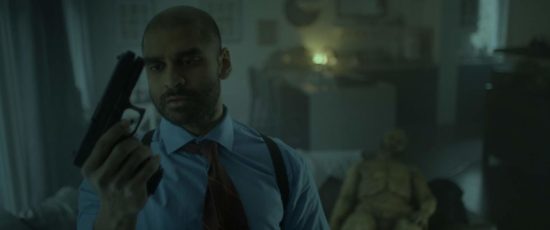
The urgency of the set-up necessitates a fast paced approach, and sure enough Lifechanger never takes the foot of the gas. Once you see him take a new identity (be it male or female) you know you’re not going to get long to get used to the new Drew. If this concept sounds like it’ll quickly become fragmented, and bitty, don’t worry – you’re in safe hands there. An aged, regretful voiceover from Bill Oberst Jr. holds the whole thing together. Even though he sometimes tells a lot more than the movie shows, for the most part he keeps it cohesive. He’s not the only constant though. Recurring throughout, there’s a local pooch that recognises Drew in all his forms, and comes tail-wagging to him. Then there’s the unsuspecting Julia (Burke), a woman he loves/ stalks across versions of himself, who spends almost every night alone in the same bar. One she says she likes because it never changes. Get it?
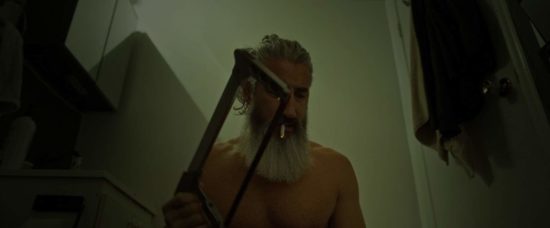
Thankfully this kind of irony is kept to a minimum throughout, without a dark comedy *wink-wink* to force rapport. That’s not to say there isn’t some trickery. Lifechanger goes to some lengths to manipulate viewers’ loyalties, such as making the men he tries to take over into total creeps. Think of it like Under the Skin with less Scarlett Johansson in oil and more (delightfully grotesque) body horror. But for the most part it’s frank about the faults of our protagonist, who despite claiming it’s all about his survival is still a murderer. That’s not to say there isn’t some redemption to it – the few dialogue sequences we get between Drew’s personas and Julia are well judged, giving dramatic stakes to what could easily have been a B-movie. And though the escalated speed at which she confides in people she thinks are strangers is jarring, I was impressed with how organically both characters’ backing stories were worked in. Yet part of me wondered if it could have benefited from being a split narrative.
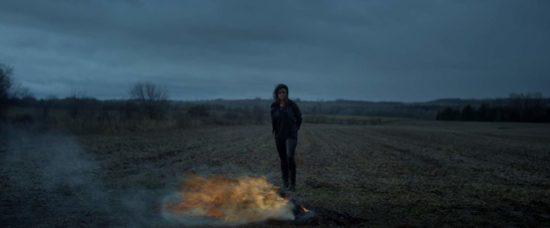
Except a couple of out of place shots, where we enter the eyes of someone following Drew, Lifechanger is a perspective piece. On one hand, this is the best way to do it since he’s the only particularly exceptional character. But the problem is that him trying to enter the lives of the people around Julia is by far the most interesting narrative thread. And outside this quest, it becomes very formulaic very quickly – with little forward momentum in the second act, nor most of the third. Drew kills someone, Drew becomes that person, Drew disposes of the body, Drew needs to switch bodies etc. Moreover, a greater focus on her scenes, which among the monster-movie mayhem are over too quickly, could give the audience something more to hang onto. It’d also make what humanity she gives the narrative seem less like a plot device in a too streamlined story and more of the point of it. Which brings me to my biggest gripe with Lifechanger: it’s in the wrong skin.
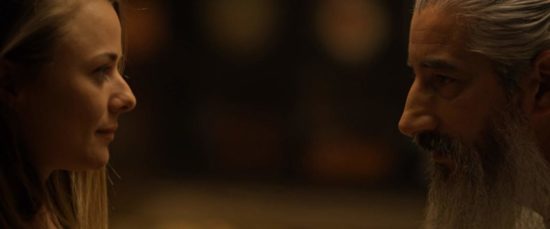
At times it almost feels like Lifechanger is either a short or a miniseries awkwardly taking the form of a 90-minute film. On one hand, it could benefit from a punchier approach that shows proof of concept and leaves the rest to our imagination. But on the other it feels like so much more could have been done with the idea. At one point Drew finds himself with a new family, having taken over the body of a lecherous dentist, though there’s little emotional impact to this. Him coming to terms with the victim having a family life, including people depending on him, should have been an important scene but it’s done away with so quickly to get to the next kill. I get we’re meant to buy he’s been doing this for decades, so is numb to the process. But in McConnell’s nihilistic vision it’s just another thing that happens. Likewise, the point about him absorbing the memories, and thus the personalities, of his victims could have led to inner conflict as he fights with their moral compasses. As is it stands , it’s a detail in a script that presents, but doesn’t build on, its own lore. With a wider scope we could see compelling drama as Drew develops a killing code or loses a sense of his own personal history in other people’s. Without these layers it’s just that flick where jumps from body to body to pull the same girl. It’s not a bad thing to be though, as Drew learns throughout, by changing its form it could achieve so much more.




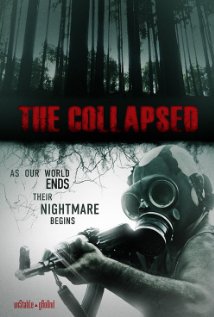
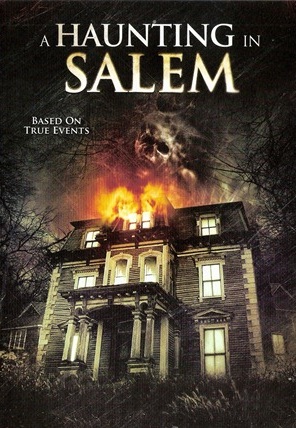

Be the first to comment